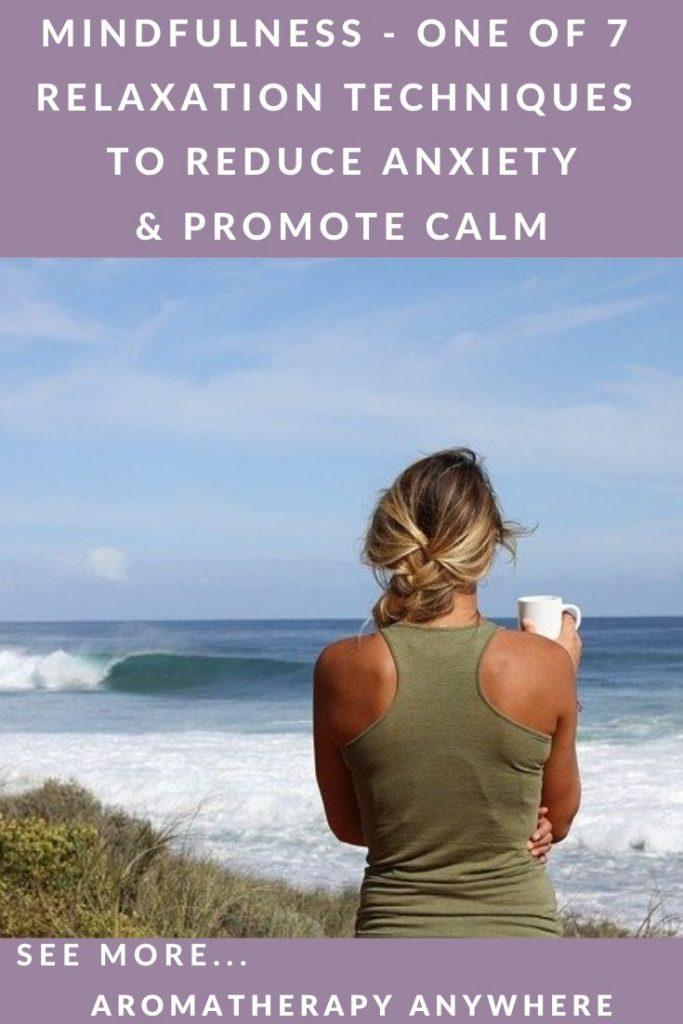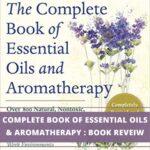As an Amazon Associate I earn from qualifying purchases. See Full Disclosure Here
Almost all of us experience some level of stress and anxiety at some time or the other. This is natural and normal. Anxiety is your body’s response to stressful situations. When our mind perceives some type of danger or threat, it puts our senses on high alert. This is an anxious response designed to protect us.
For most of us, when the immediate threat fades away, so does our stress and anxiety. Unfortunately, this does not happen with everyone. The feeling of anxiety persists in some people. You may experience the form of nagging worry, fear, nervousness or unease about something that you cannot really pinpoint. These feelings persist for extended periods of time, impacting your mental and physical well-being and hampering your ability to enjoy life.
Anxiety may cause you to worry over situations that are out of your control or anticipate danger where there is none. If your anxiety levels are very high, you may also suffer from shortness of breath, or experience panic attacks without any obvious trigger.
Fortunately, anxiety can be managed fairly well with relaxation techniques. Putting the mind and body at ease relaxes muscles, induces a feeling of calm, lowers heart rate, and delivers several other benefits that help to reduce anxiety. Here are some of the most effective relaxation techniques to ease anxiety and help you feel calmer and more peaceful.
1. Practice Slow Breathing
 At first, slow breathing may seem like an over-hyped relaxation technique to reduce anxiety. Breathing is an essential function. How does it make a difference whether we breathe fast or slow? How does the speed of breathing affect our mental state?
At first, slow breathing may seem like an over-hyped relaxation technique to reduce anxiety. Breathing is an essential function. How does it make a difference whether we breathe fast or slow? How does the speed of breathing affect our mental state?
Slow breathing is actually a very effective relaxation technique that’s often recommended for the control of psychophysiological states. In the case of anxiety, slow and deep measured breaths offer two crucial benefits that help to bring about calmness.
Firstly, slow breathing helps provide a quick reprieve from one of the most common of anxiety symptoms – quick breathing. Feelings of anxiety turn on the sympathetic part of the nervous system which is responsible for the fight or flight response. This causes rapid, shallow breathing. Slow breathing balances the nervous system. When you focus on breathing slowly, it helps you to gain control over your thoughts, calm your mind, and lower your anxiety levels.
Taking slow, deep breathes also lowers levels of the stress hormone cortisol thereby reducing anxiety. The cortisol reduction power of slow breathing is as effective and fast-acting as antidepressant medication.
These are some of the best books I’ve found on the art of slow breathing to reduce anxiety. The best part is all of these are available as audiobooks so you can listen to them as you practice your slow breathing. You can listen to. When you subscribe to Amazon Audible, you get the first month free.
2. Meditate For a Few Minutes Everyday
 Meditation is one of the most popular relaxation techniques for anxiety. Meditation teaches you to completely clear your mind of all thoughts, deeply relax, and take your subconscious to a place of inner peace and bliss. If you suffer from a constant state of anxiety, meditation can be a powerful tool for getting rid of any anxious feelings.
Meditation is one of the most popular relaxation techniques for anxiety. Meditation teaches you to completely clear your mind of all thoughts, deeply relax, and take your subconscious to a place of inner peace and bliss. If you suffer from a constant state of anxiety, meditation can be a powerful tool for getting rid of any anxious feelings.
So how does meditation work to relieves anxiety? It works by promoting centered, calm patterns of thought that lower stress and release muscle tension.
Meditation allows you to experience the present moment and nothing else. You live “in the now”, fully appreciating your present existence. The meditation process blocks out the past and the future, which are the things that most people are anxious and worried about.
By settling your mental and physical beings in only the present situation, your anxiety reduction is a pleasant side effect of meditation. You are intentionally focused on the here and now, and not on some future or past anxiety-inducing issue.
Meditation also effectively silences your “monkey mind”. This refers to the constant chatter and overactive, seemingly never-ending “self talk” that we tend to experience. Instead of your mind constantly running around in circles with our thoughts, it turns all of its energies towards experiencing the present moment. Meditation helps lower anxiety levels by calming your monkey mind and helping you focus on the present moment.
3. Use Positive Distractions
Another effective way of reducing anxiety is distracting your mind whenever you feel heightened anxiety-related feelings. Just like meditation, positive mind distractions have the power to control negative thinking and induce a sense of serenity.
There are several ways to use positive distractions to reduce anxiety. Choose from any one or more of these ideas depending on what you like best. You do not want to force yourself to get distracted doing something you don’t particularly enjoy as you will only get up getting more frustrated and stressed.
- Repeat positive affirmations such as “I feel calm and serene”, “I love my life” or “I am in control of my feelings”
- Spend time with your favorite past time, whether it’s painting, embroidery or gardening
- Use a fidget spinner toy that is designed to reduce stress and anxiety
4. Be More Mindful
 Mindfulness is the art of staying present in the here and now. Instead of getting distracted by to-do lists or worrying about work, you focus on what you’re supposed to be doing in this moment.
Mindfulness is the art of staying present in the here and now. Instead of getting distracted by to-do lists or worrying about work, you focus on what you’re supposed to be doing in this moment.
Mindful living makes you more appreciative about what you have here and now instead of being anxious about what may or may not happen in the future. This is a powerful way to calm your anxiety and improve your mood.
If mindfulness is a new concept for you, this book may help. The Little Book of Mindfulness is an excellent book written by Dr. Patrizia Collard, a reputed mindfulness teacher and stress management consultant. This book introduces readers to the concept of mindfulness. Read my review of the book here or buy it directly from Amazon here. The Little Book of Mindfulness is also available as an audiobook, so you can listen to it anytime with your Audible subscription.
5. Learn the Art of Progressive Muscle Relaxation
Whenever you are anxious, your body automatically goes into the fight or flight response mode whereby muscles tense up in readiness to respond to danger. If you suffer from chronic anxiety, your muscles remain in a constant tense state. This can result in adverse effects such as fatigue, muscle pain, and soreness, headaches among others. Muscle relaxation techniques can help deal with this side effect of anxiety.
This does not mean sitting back and putting your feet up or scheduling a deep tissue massage session. Muscle relaxation techniques for anxiety involve actively relaxing all body muscles one muscle group at a time. Known as Progressive Muscle Relaxation (PMR), this relaxation technique includes a 2-step process of alternatively tensing and relaxing specific groups of muscles at a time. This process of clenching and unclenching your muscles enables them to enter a deep state of relaxation.
Progressive Relaxation – Relaxation & Stress Reduction (Audio CD) is the go-to guide for anxiety relief, stress reduction, and total relaxation. Created by Patrick Fanning, this audio CD presents a complete introduction to the Jacobsen technique for progressive deep muscle relaxation. You’ll learn simple breathing exercises and progressive relative techniques to help calm your anxiety and reduce stressful feelings. You’ll also discover Yoga breathing techniques to help you relax or build extraordinary energy when you need it most.
6. Use Aromatherapy for Anxiety
 Aromatherapy can be used to calm anxiety by itself and it can also be used to support all of the above relaxation techniques for anxiety.
Aromatherapy can be used to calm anxiety by itself and it can also be used to support all of the above relaxation techniques for anxiety.
Aromatherapy involves the use of essential oils that are extracted from flowers, herbs, and plants. Certain essential oils have properties that help create a calm relaxing environment that lowers anxiety levels. Lavender, Chamomile, Bergamot, Frankincense, Vetiver and Rose are some of the best essential oils for anxiety.
Read more about the best essential oils for anxiety and how to use them.
Diffusing any of these essential oils when you’re practicing your breathing techniques or meditating will help calm your anxiety faster.
7. Listen to Soothing Music
Listening to soothing music can slow your heart rate, lower blood pressure, and reduce anxiety. Create a playlist of slow, soothing music. Mix it up with nature sounds such as the sound of a bubbling brook, birds chirping or a gentle waterfall. Allow your mind to focus on the different melodies and instruments.

Disclaimer: This information is not intended to serve as medical advice. Please consult your doctor before using any natural medication or if you experience any unusual symptoms. See Full Disclaimer here.







